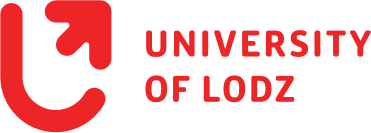The University of Lodz Publishing House applies the highest publishing standards and is guided in its mission by ethical principles. If any scientific dishonesty is identified, it documents all its manifestations and informs the competent entities.
When submitting a work for publication in the University of Lodz Publishing House, the author is obliged to guarantee the full originality of their work and to avoid such phenomena as:
– plagiarism, which is the appropriation of another person’s work in whole or in part,
– self-plagiarism (duplicating a publication), i.e. publishing one’s own work in whole or in part in more than one publication.
It should be emphasised that any author submitting their work for publication in the University of Lodz Publishing House should precisely specify the contribution of particular persons to the work, including their affiliation, information on the authorship of the concept, methodological assumptions, analysis of the results, etc.
The author is required to provide information on the sources of funding for the publication, contributions from scientific and research institutions, associations and other entities.
By following the procedure described above, the following irregularities can be avoided:
– ghost authorship, i.e. the omission of contributors from the list of authors,
– guest or courtesy authorship, which is the attribution of authorship to persons who do not contribute to the submitted work.
Other phenomena that violate publishing ethics include fabrication of data, i.e. basing a scientific work on false research results.
If any of the listed forms of non-compliance with the principles of publishing ethics is suspected, the University of Lodz Publishing House takes the following actions:
– asks the author to clarify the situation and decide whether the suspicions are justified and require a revision of the work or its rejection. The decision to reject a work should be preceded by an analysis of the work as a whole, the aim of which will be to identify passages that are unoriginal, duplicated or taken from another work and to indicate their source. In justified cases, the University of Lodz Publishing House carries out such an analysis using a selected anti-plagiarism system,
– provides information about the identification of a documented breach of ethical principles to the supervisor of the basic unit in which the author who is an employee of the University of Lodz s employed. In the case of authors who are not employees of the University of Lodz, the University of Lodz Publishing House terminates its cooperation by not accepting the work for publication.
In this way, we guarantee our readers that our publications are produced transparently, honestly and with respect for the work’s authorship.
Ten post dostępny jest także w języku: Polish

